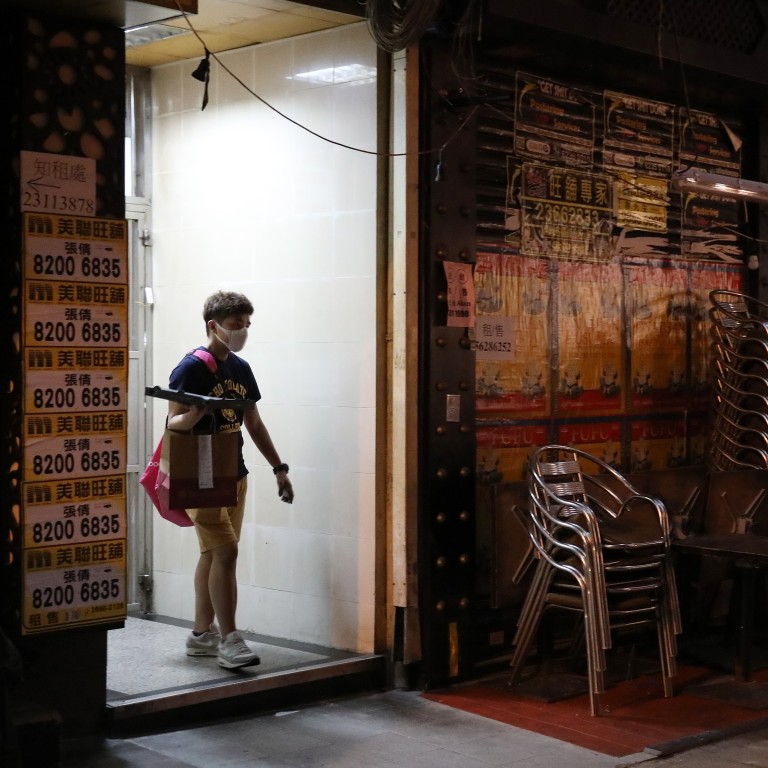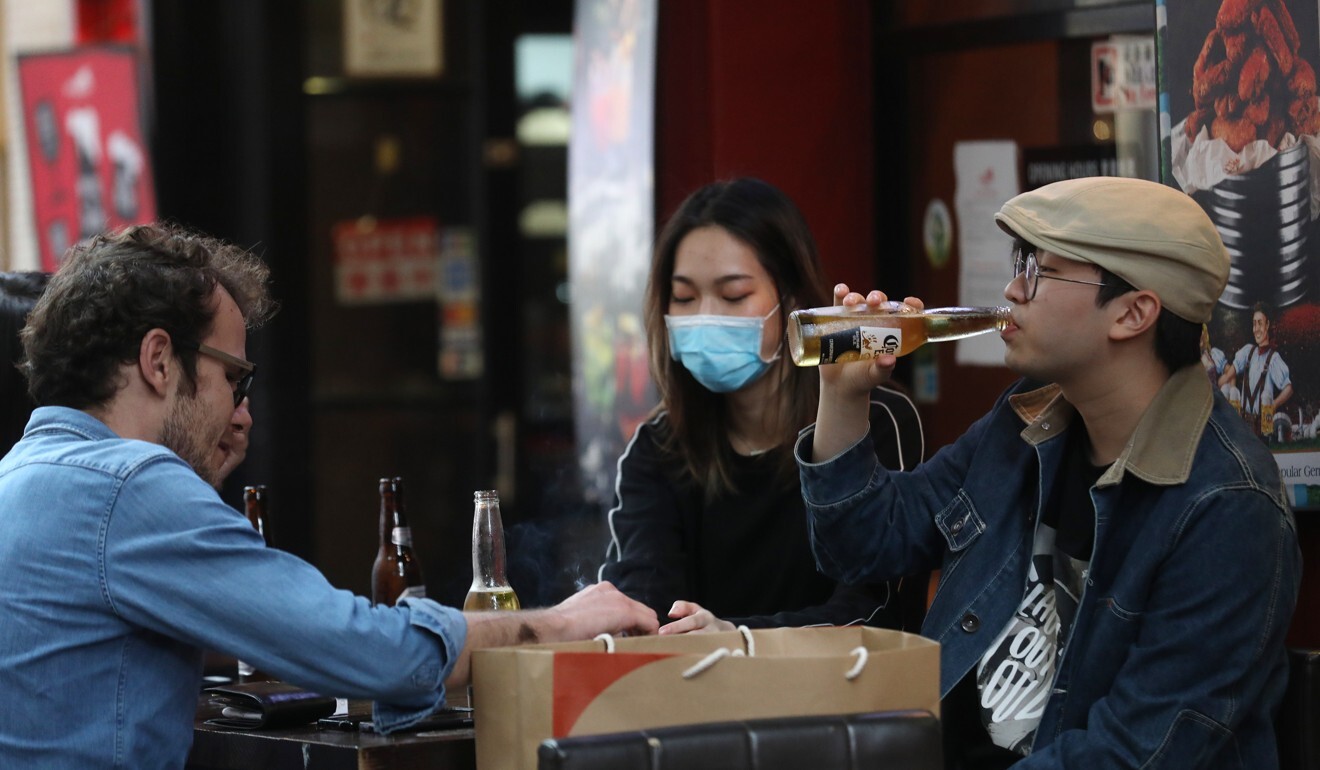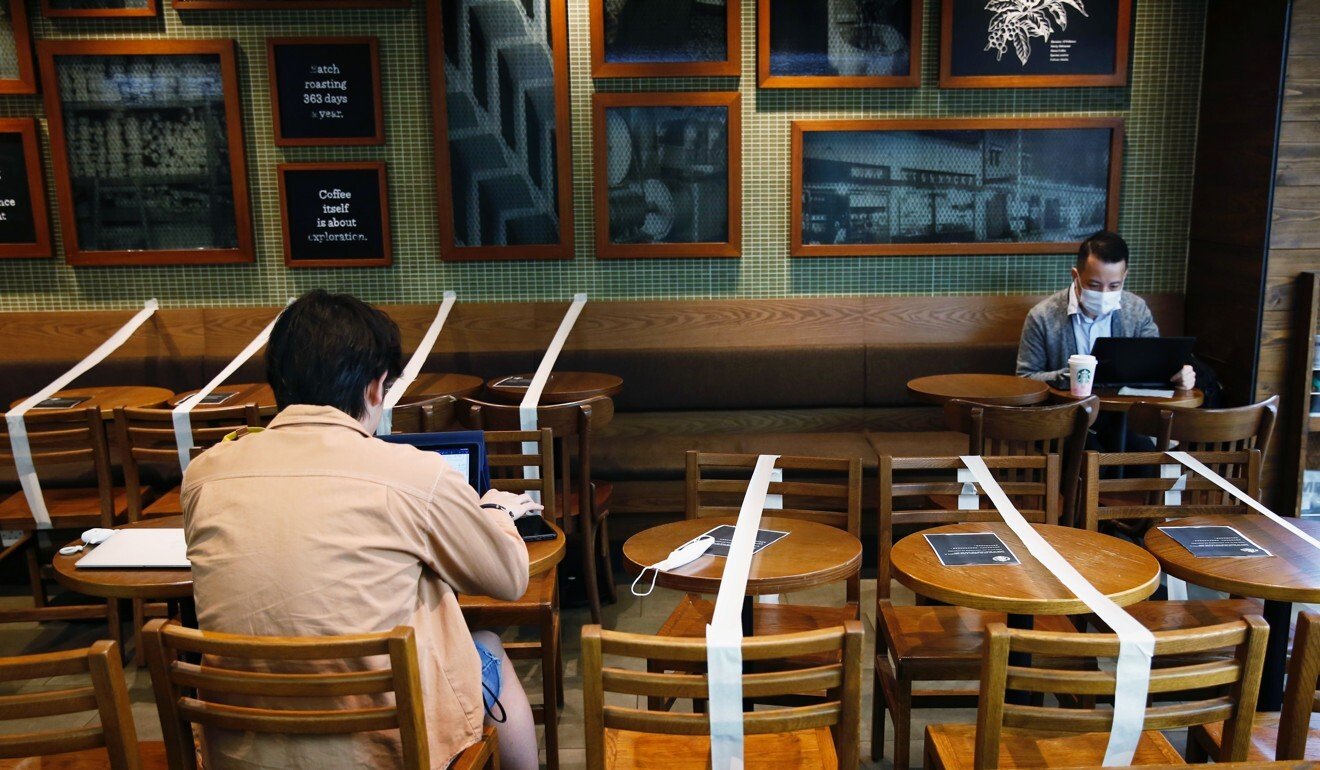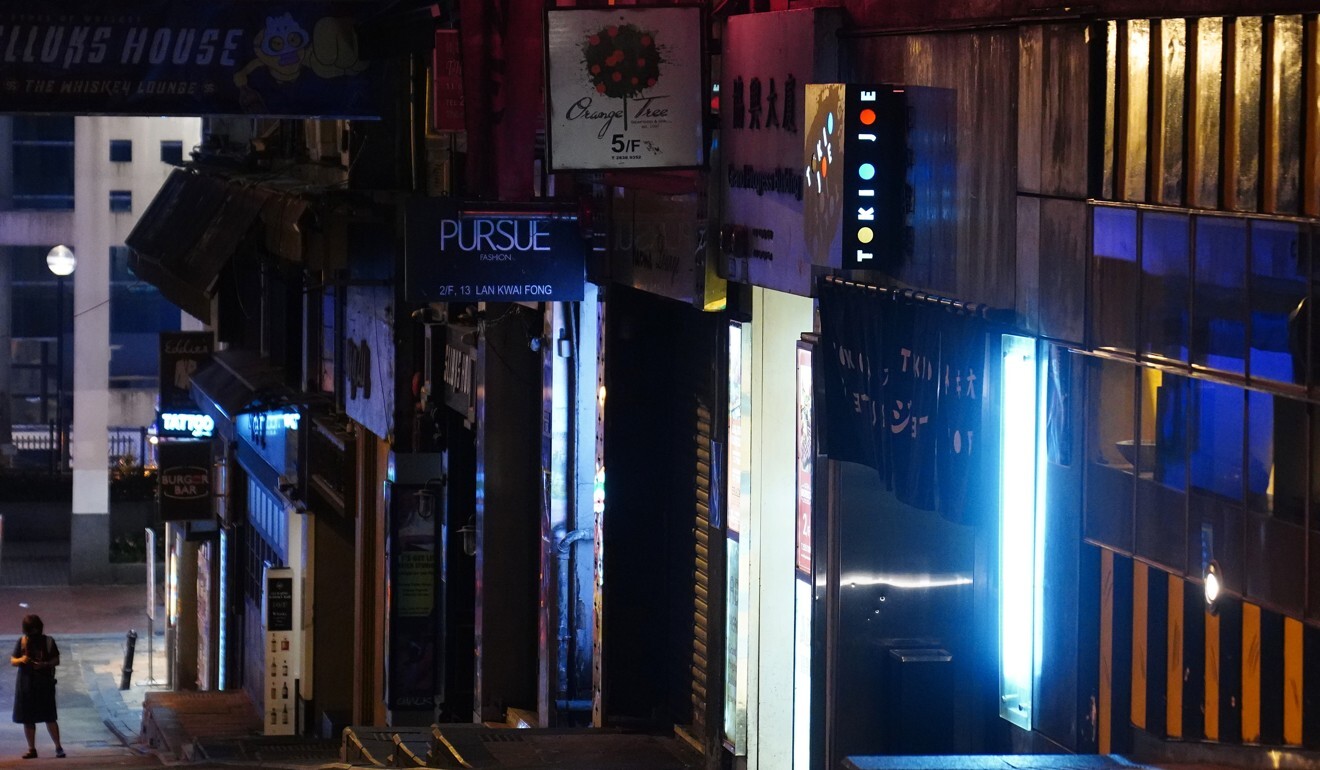
Bars and pubs shut across Hong Kong as city records 43 new coronavirus infections
- With latest round of closures, government hopes to stop cluster of infections tied to nightlife districts
- But owners complain the new rule, which allows some venues to stay open if they serve food, is unclear
Health authorities said six of nine new local coronavirus infections were linked to bars in Central and Tsim Sha Tsui, with 34 others coming from overseas, taking the city’s overall tally to 845.
The latest shutdown order came as residents prepared to fan out across the city on Saturday to sweep the graves of ancestors and a senior official warned that students were unlikely to return to school before summer holidays.
One person visited All Night Long in Tsim Sha Tsui, and another had a friend, among the confirmed cases, who had gone to Insomnia in Central, Chuang said. Two others were performers and the third was a bar employee.
The sixth case involved a man who visited Tasmanian Ballroom in Lan Kwai Fong after returning to Hong Kong from the Netherlands in early March. “We are not sure whether this is an imported case involving a long lapse of time or a locally infected one from a bar,” Chuang said.
A Cathay Pacific ground employee had also been infected but the source of transmission was unclear, as the person had also recently attended a funeral, she said.
The government has already closed nine types of venue, including cinemas, gyms, saunas and karaoke bars. Under the ban that came into effect at 6pm, any premise that is “exclusively or mainly used” to sell and consume liquor must close for at least two weeks. Offenders risk a maximum HK$50,000 fine (US$6,450) and six months in jail. Authorities have tied roughly 70 infections to such venues, including a baby boy about six weeks old.
“With the new government’s policy, the message is rather unclear,” said the vice-chairman of the Hong Kong Bar and Club Association, Chin Chun-wing, who also criticised the government for failing to consult the industry beforehand.

Chin said many owners would close down rather than sell food and risk running afoul of the law. He urged the government to offer compensation by paying their full rent and 80 per cent of staff salaries. He called on authorities to close all restaurants to better stem the spread of the virus and avoid extending the shutdown period.
Barrister Anson Wong Yu-yat agreed the new regulation was ambiguous, which should not be the case for a law that carried a criminal penalty. He said that while restaurants were still allowed to serve alcohol, bars might not get away just by selling food.

But at one venue customers were allowed to sit in a row of seats opposite the bar after ordering only drinks. “We will give you some snacks for free,” an employee said.
Across the harbour in Tsim Sha Tsui, some pubs and restaurants remained open but with their bar areas closed. About 20 police officers and inspectors from the Food and Environmental Hygiene Department were patrolling near Chatham Road South.
Officers were checking licences and whether patrons were mostly there for food, according to
Nana Cheung, bar team manager of M1 Group that runs the Right Place on Prat Avenue.
Customers need to order food like starters and main courses
“Customers need to order food like starters and main courses,” said Cheung, whose establishment
had an alcohol and restaurant license. “We also advanced our closure time from 2am to 11:30pm since we are mainly offering dinners due to the new rules.”
Sam Lee, an employee at a bar on Hart Avenue, was cleaning up after the deadline had passed.
“Our bar only has an alcohol licence and a hawker licence. No restaurant licence, ” Lee said. “The new regulation didn’t say clearly if we can continue to operate. To be safe, we are closing for two weeks from today.”

With the outbreak showing no signs of tapering off, microbiologist Dr Yuen Kwok-yung, a member of the government’s health advisory team, said schools were unlikely to open their doors before the summer holiday. While each school has adopted its own approach, most have been offering classes online, including physical education lessons.
The Hospital Authority’s chief manager of quality and standards, Dr Lau Ka-hin, offered assurances that Hong Kong had enough N95 masks for frontline medical staff to last at least two months.
When asked whether hospitals had plans to reuse them when supplies ran low, Lau said they would explore all possibilities.
The public show of support across the city was organised by a volunteer team at property giant Swire Properties and a non-profit organisation called Hong Kong Community Foundation, which were inspired by “Clap for Carers”, a similar initiative that had gone viral across European countries since late March.

